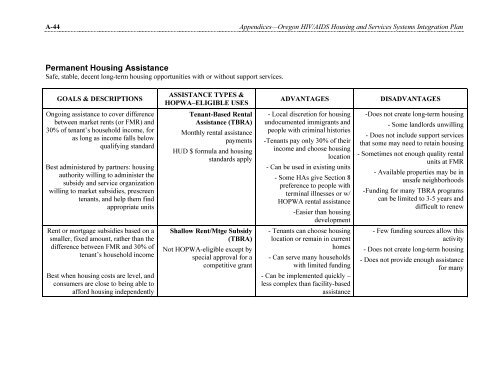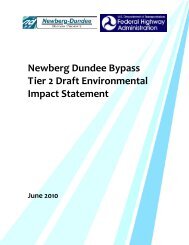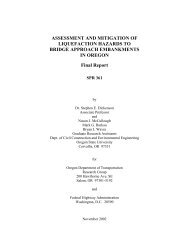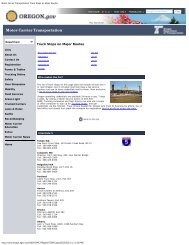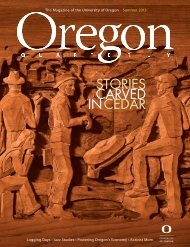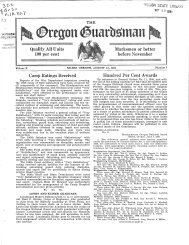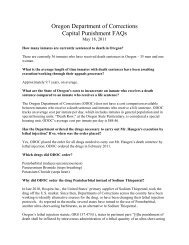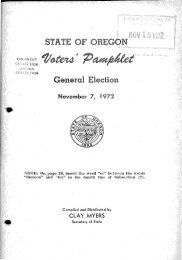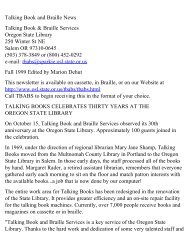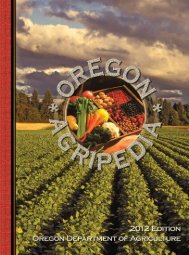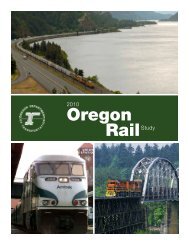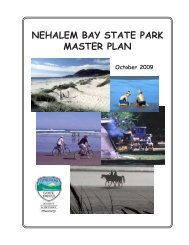Oregon Balance of State HIV/AIDS Housing & Services Systems ...
Oregon Balance of State HIV/AIDS Housing & Services Systems ...
Oregon Balance of State HIV/AIDS Housing & Services Systems ...
Create successful ePaper yourself
Turn your PDF publications into a flip-book with our unique Google optimized e-Paper software.
A-44 Appendices—<strong>Oregon</strong> <strong>HIV</strong>/<strong>AIDS</strong> <strong>Housing</strong> and <strong>Services</strong> <strong>Systems</strong> Integration Plan<br />
Permanent <strong>Housing</strong> Assistance<br />
Safe, stable, decent long-term housing opportunities with or without support services.<br />
GOALS & DESCRIPTIONS<br />
Ongoing assistance to cover difference<br />
between market rents (or FMR) and<br />
30% <strong>of</strong> tenant’s household income, for<br />
as long as income falls below<br />
qualifying standard<br />
Best administered by partners: housing<br />
authority willing to administer the<br />
subsidy and service organization<br />
willing to market subsidies, prescreen<br />
tenants, and help them find<br />
appropriate units<br />
Rent or mortgage subsidies based on a<br />
smaller, fixed amount, rather than the<br />
difference between FMR and 30% <strong>of</strong><br />
tenant’s household income<br />
Best when housing costs are level, and<br />
consumers are close to being able to<br />
afford housing independently<br />
ASSISTANCE TYPES &<br />
HOPWA–ELIGIBLE USES<br />
Tenant-Based Rental<br />
Assistance (TBRA)<br />
Monthly rental assistance<br />
payments<br />
HUD $ formula and housing<br />
standards apply<br />
Shallow Rent/Mtge Subsidy<br />
(TBRA)<br />
Not HOPWA-eligible except by<br />
special approval for a<br />
competitive grant<br />
ADVANTAGES DISADVANTAGES<br />
- Local discretion for housing<br />
undocumented immigrants and<br />
people with criminal histories<br />
-Tenants pay only 30% <strong>of</strong> their<br />
income and choose housing<br />
location<br />
- Can be used in existing units<br />
- Some HAs give Section 8<br />
preference to people with<br />
terminal illnesses or w/<br />
HOPWA rental assistance<br />
-Easier than housing<br />
development<br />
- Tenants can choose housing<br />
location or remain in current<br />
homes<br />
- Can serve many households<br />
with limited funding<br />
- Can be implemented quickly –<br />
less complex than facility-based<br />
assistance<br />
-Does not create long-term housing<br />
- Some landlords unwilling<br />
- Does not include support services<br />
that some may need to retain housing<br />
- Sometimes not enough quality rental<br />
units at FMR<br />
- Available properties may be in<br />
unsafe neighborhoods<br />
-Funding for many TBRA programs<br />
can be limited to 3-5 years and<br />
difficult to renew<br />
- Few funding sources allow this<br />
activity<br />
- Does not create long-term housing<br />
- Does not provide enough assistance<br />
for many


